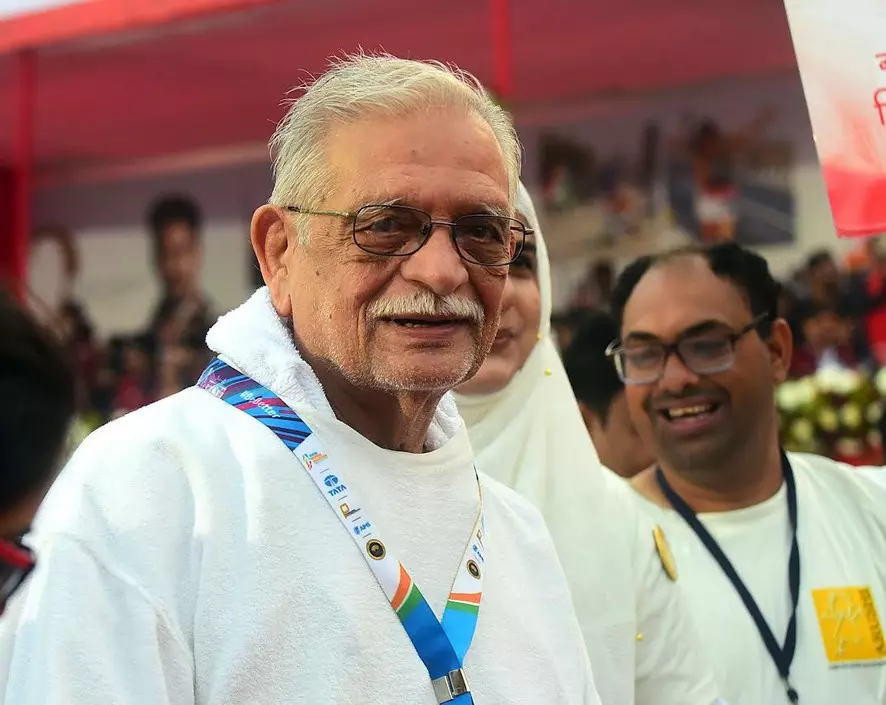
Poetry flows from every pore of Gulzar saab. Ever since he entered the portals of Hindi cinema with the lyric ‘Mora gora ang lai le’ in Bimal Roy’s Bandini, his words have painted pictures in movie-goers’ minds, and left a lasting impact on their hearts. His dialogues and scripts for films like Hrishikesh Mukherjee’s Aashirwaad and Asit Sen’s Khamoshi, and directorial ventures like Mere Apne, Khushboo, Mausam, and more recently, Maachis and Hu-tu-tu, have constantly broken barriers between mainstream and realistic cinema.
Presenting the celebrated poet, lyricist, author and screenwriter, who turned 91 on August 18, in conversation with Deccan Chronicle:
QDoes lyric writing give you enough creative satisfaction?
No longer so. Suddenly, the standard of lyrics has been drastically lowered. Earlier, producers either liked or rejected a lyric. But now strange demands are made — Yeh daal do; woh daal do (include this or that). And out of 10 songs I’m supposed to write ‘Chaiyyan chaiyyan’ (Dil Se) comes up at least five times for reference. No matter what the situation, they want to sneak a ‘Chal Chaiyyan Chaiyyan’ into the song. Either they fail to understand me or I fail to understand them.
QSpeaking of ‘Chaiyyan chaiyyan,’ you enjoy working with Mani Ratnam, don’t you?
I was really happy working with Mani Rathnam in Dil Se. He’s the only director who told me to give him abstract images in my songs. He talked to me like a painter and a poet. I have to really hard-sell my ideas normally. Sometimes even to convince a director about one unfamiliar word becomes a struggle.
QYou’ve adapted Bengali authors’ works repeatedly in your cinema, haven’t you?
Yes, Samaresh Bose in Namkeen. I’ve also adapted Saratchandra in my second film Khushboo. That was based on ‘Babu Moshai.’ Saratchandra has always been a part of me. I’ve been his admirer from my young days.
QWere you faithful to the original?
What’s being faithful to a novel? A filmmaker has to be faithful in spirit, not in plot and individual incidents. I adapted Saratchandra’s ‘Babu Moshai’ and also wanted to do his ‘Devdas’ because I was fascinated by his women characters. Their dignity and self-respect in a fiercely conservative society even when they were suffering was amazing!
QWhat according to you was the essence of Saratchandra’s ‘Devdas’?
To me, the two women are all-important. Paro and Chandramukhi are two very different aspects of womanhood. Paro turns from a girl into a woman when she’s married to an elderly widower with grown-up children. That metamorphosis is one of the most amazing aspects of Saratchandra’s novel. On the other side of the feminine spectrum is Chandramukhi, the Fallen Woman on the wrong side of youth, who falls in love past her prime. She had never met a man like Devdas who comes to the flesh market, flings his purse at her and leaves. The two women represent the dusk and dawn aspects of life. I think these are the resonances that any filmmaker attempting Devdas has to capture. This is how I would interpret ‘Devdas.’ It isn’t about “Dance kissne zyada achcha kiya, Vyjayanthimala or Madhuri Dixit?”
QWhy didn’t you make Devdas?
I shot the film for 8-10 days. Then my producer Kailash Chopra deserted me.
“I’ve done two films with Gulzar Saab…actually three…I had a guest appearance in Khushboo, before I was cast as the lead in Mausam. Gulzar is one of the finest filmmakers of Hindi cinema. He is not a Bengali, but his cinematic sensibilities are very Bengali.”
— Sharmila Tagore
“Gulzar was a phase in my career when I had the urge to be taken seriously as an actor. I did two of my favourite films – Khushboo and Parichay with him. People said I looked like him in these films. His influence over me while working with him was such that maybe I began imitating him.”
– Jetendra
“I will always be thankful to Gulzarji for giving me Meera. I always wanted to play Meerabai. And when this opportunity came, I was overjoyed. I wish the film had worked at the box office. I feel one reason Meera failed was that Lataji refused to sing the Meera Bhajans. But I consider Meera a milestone in my career. It was tough working with Gulzar. He never allowed me to use any makeup. So I felt quite vulnerable yet honest while working with him.”
— Hema Malini






